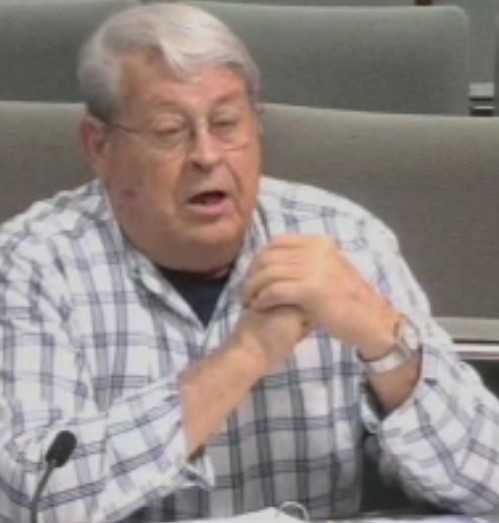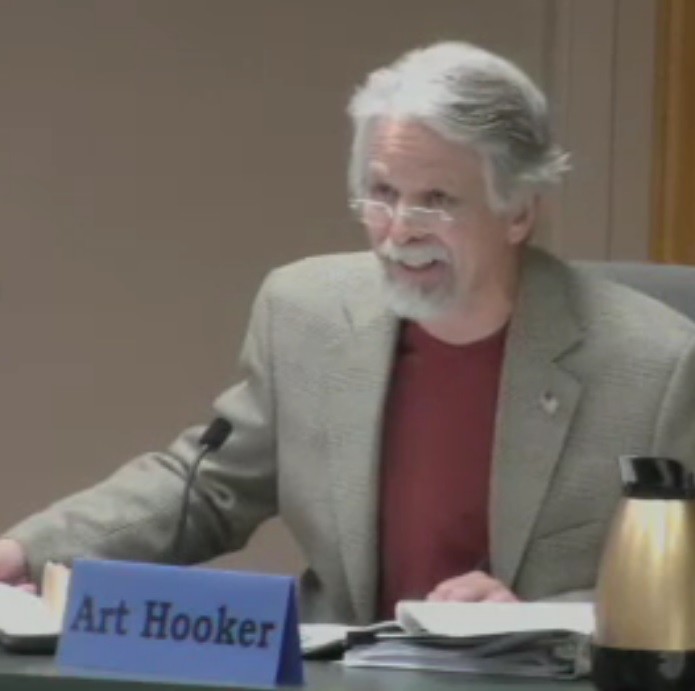Panel recommends BCC pay hike
GREEN COVE SPRINGS – In an effort to correct what they see as a punishment to the wrong people, the Charter Review Commission will present the voters of Clay County with a ballot issue in November …
This item is available in full to subscribers.
Attention subscribers
To continue reading, you will need to either log in to your subscriber account, or purchase a new subscription.
If you are a current print subscriber, you can set up a free website account and connect your subscription to it by clicking here.
If you are a digital subscriber with an active, online-only subscription then you already have an account here. Just reset your password if you've not yet logged in to your account on this new site.
Otherwise, click here to view your options for subscribing.
Please log in to continueDon't have an ID?Print subscribersIf you're a print subscriber, but do not yet have an online account, click here to create one. Non-subscribersClick here to see your options for subscribing. Single day passYou also have the option of purchasing 24 hours of access, for $1.00. Click here to purchase a single day pass. |
Panel recommends BCC pay hike
GREEN COVE SPRINGS – In an effort to correct what they see as a punishment to the wrong people, the Charter Review Commission will present the voters of Clay County with a ballot issue in November designed to bring Clay County commissioners’ salaries more in line with their peers across the state.
Members of the CRC present at the commission’s Jan. 4 meeting voted 9-0 unanimously to put on the November general ballot an item that would raise Clay County commissioners’ salaries from their current $37,000 a year to about $51,580 a year. The pay hike would be done in 5 percent increments over a four-year period. Six Charter Review Commission members were absent from the meeting.
That option won out over two others that were brought before the full CRC by a subcommittee that was formed specifically to look at the issue of commissioners’ salaries. One of those options would have raised commissioners’ salaries to state statutes’ levels of a little over $70,000 in one fell swoop as soon as legally possible, presumably Jan. 1, 2019. The other would have raised the salaries to the state formula level, but over a period of five years. (The state formula is known as section 145.031 or “145” for short.)
The third option, which won out, was a slight modification of the second option. It stated that that the CRC would not have to put salaries at 100 percent of the state statute formula’s amount, but could use any percentage of that formula it deemed proper.
The option that the CRC approved to bring before the voters of Clay County would put commissioners’ salaries at 70 percent of the state formula level, instead of the 50 percent at which it now is.
“I feel like this is reasonable looking out for both the citizens and the commissioners,” said Larry Kirkman, who chaired the subcommittee.
Kirkman said he was originally going to support going to 80 percent of the state formula level, but after hearing from many people who were “in opposition to all or some increase” decided 70 percent was a good number.
The 70 percent level, if approved, would not go up over the years, but the pay level could because of a state stipulation associated with rising population levels, said CRC member Art Hooker.
Officials have repeatedly said county commissioners have not asked for the raise. It came up for discussion because it was one of the top three items members of the Charter Review Committee thought should be dealt with during the CRC’s 2017-2018 session.
A Charter Review Commission is appointed every four years to review the county’s charter and determine if there are items that need to be revised or amended. The 15 members of the CRC are nominated by the Board of County Commissioners.
The problem members of the CRC saw with the county commissioners’ salaries is that their salaries fall near the bottom of the pay scale compared to the majority of other commissioners in the state. Because Clay County is one of 20 charter counties in the state (the other 47 counties are known as “constitutional” counties and are ruled by state statute), it is governed by what is called “home rule.”
The commissioners’ current salaries were set by a voter initiative passed in the 2008 general election. That initiative amended the county charter.
Most other Florida county commissioners’ salaries are determined by the state’s formulas. In a report recently issued through the Office of Economic and Demographic Research for 2017-2018, the amount paid to Clay County commissioners should be $73,686, said Hooker.
That’s a bump up according to figures previously supplied by county auditor Mike Price, who said in a Nov. 8, 2017 memo in answer to CRC questions that following 145, “the salary for sitting commissioners today would be $70,505.”
In comparison, constitutional officers in the county, who are paid through the state formula, currently receive the following annual salary for what is considered full-time work: the clerk of courts, supervisor of elections, property appraiser and tax collector receive $128,874 while the sheriff receives $137, 837, Price said in the same memo.
The reason behind the voter initiative that lowered county commissioners’ pay was a large part of the general review of the commissioners’ salaries at the Jan. 4 meeting. Hooker had invited Price to attend and went over a 47-page document Price wrote titled “Internal Inquiry Final Report” and dated Nov. 17, 2005.
In the report, which is public record, Price went over what had happened that led voters to lower commissioners’ pay. Price also went over the basics of the situation in a recent memo to the CRC answering its questions concerning the history of the time.
Basically, Price said during the mid-2000s, the public came to view the county government as “basically dishonest.” This came on the heels of “scandals” involving county government that resulted in a Federal Bureau of Investigation and state attorney’s office investigations, a grand jury being convened in 2006 and two senior management-level BCC employees being terminated. There was also the indictment and trials of an elected official and a senior manager. In addition, another scandal had occurred in 2004 that alleged an elected official had misused a county credit card.
Looking to make the county government more accountable, the 2006 Charter Review Commission came up with the idea to add two at-large members to the county commission, paying for the new members by cutting the existing members’ salaries. Even though that idea was passed by voters and two new members elected, they never took office as a citizen’s initiative group that voters supported in 2008 resulted in the two new members being cut and commissioners’ salaries being lowered to $37,000 a year, where it still remains.
For Price, the whole thing essentially resulted in punishing future commissioners for what previous commissioners had done, something he did not agree with. Price – a Certified Public Accountant – also said on Jan. 4 that he wanted to make sure people understood no county commissioner had ever complained to him about their salary or asked him to write a memo to the CRC concerning the salary history (that was written in response to a CRC question, he said).
“No member of the BCC asked me to write a memo to you guys. No member of the Board of County Commissioners has ever discussed their pay or expressed any dissatisfaction with their pay in my presence, ever,” he said.
At the end of the review, Hooker thanked Price and said he thought it was important for people to understand how things had gotten to the point they are today and “also to understand that’s in the past and that does not involve these current county commissioners and if we’re smart as voters, it won’t involve future county commissioners.”
The other CRC members present agreed with him.
“We cannot continue as a county, as a community and as human beings to make others suffer for someone else’s sins,” said Tamara Brandt, who added she believed the commissioners put in a tremendous amount of time – much more than a part-time job – and deserved a pay hike.
Much of the resulting discussion revolved around whether the commissioners’ jobs were part time or full time, and how to present a pay hike to the public so it would understand why it was being suggested. Among the methods discussed were meeting with civic groups or home owners associations and others to answer questions and utilizing various forms of publicity. Brandt is president of Ridgecrest Civic Association.
“I think we have to make sure that we educate the citizens and that we bring them on board to understand how important it is if we’re going to get the caliber of people that we want on the commission,” said Glo Smith.
As for how much time commissioners put into their job, the consensus was that the jobs are much more than part time.
“I’m guessing that it’s a full-time or more than full-time job,” said Paul Sarto, who took the place of David Cheers, who had to resign.
Ronald Stotler, a former county commissioner, said it’s definitely not a job where you punch in from 8 a.m. to 4 p.m., but rather one where a person is constantly on call. “There’s no set hours,” he said.
CRC Vice Chairman Charles R. “Scotty” Taylor Jr. suggested inviting current and/or former commissioners to appear to let the CRC know how they view their jobs. “I think we need to have that on record,” he said.
Brandt also suggested getting calendars from the past couple of months for current commissioners to see what their schedules are like.
The CRC will meet again at 7 p.m. Jan. 29 in the county commission chambers to discuss single district representation versus at-large representation, another issue that came about from a previous citizen petition and referendum.











